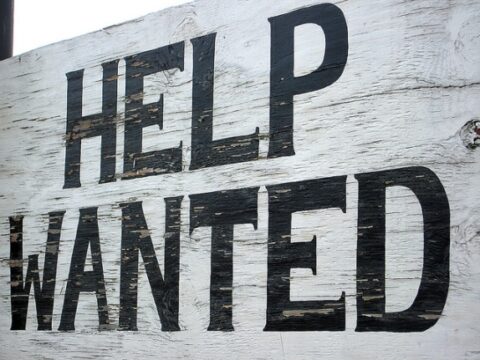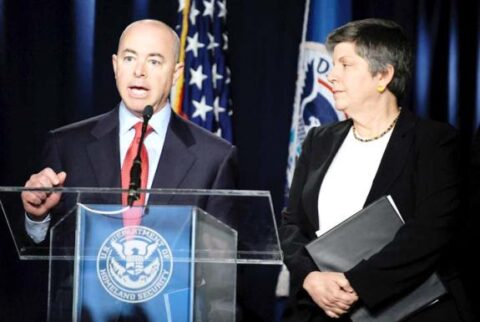Business & the Workforce

Some Alabama Businesses Having Trouble Replacing Immigrant Workers
Just two weeks after Alabama’s extreme immigration law (HB 56) went into effect, many are reporting an exodus of immigrants, Latinos and their families from the state. While HB 56 supporters cheer the exodus as a victory, many Alabama businesses say they are left without an adequate workforce. Despite assurances from Governor Bentley that U.S. citizens will gladly take those jobs, Alabama farmers, meat processors and housing contractors are finding that U.S. citizen or legal workers are either not willing or able to take those jobs—leaving fruit to rot on the vine and home reconstructions projects unfinished. Not only will this hurt Alabama business in the short term, economists say, but will shrink the state’s economy and productivity over time. Read More

Dayton, Ohio Passes Plan to Revitalize Economy through Immigrant Integration
Shortly after Alabama began implementing their anti-immigration law (HB 56), Dayton, Ohio passed legislation that welcomes and integrates immigrants with the hope that they will revitalize their slowing economy. Faced with a declining population, Dayton’s City Commission voted unanimously last week to adopt the Welcome Dayton Plan—a plan that is tapping into the very economic stimulus that Alabama is driving out. Read More

Tell Me Again How Alabama’s Immigration Law is a “Victory for the State?”
Almost immediately after Judge Sharon Blackburn failed to enjoin key provisions of Alabama’s draconian immigration law (HB 56) last week, Alabamans began to feel the sting of the law’s harsh provisions. As immigrants leave the state, farmers, contractors, and homebuilders complain that labor shortages are and will continue to hurt their businesses. School administrators worry absent students will result in the loss of future funding. Immigrant rights groups fear the law will prevent victims from reporting crime to the police and pregnant women from going to the hospital. While Alabama Governor Robert Bentley hailed HB 56 as a “victory for the state,” the law’s intended and unintended consequences have proven to be anything but. Read More

Declining Cities Look to Immigrants to Revitalize Economies and Increase University Enrollment
In a recent speech to the U.S. Chamber of Commerce, New York City Mayor Michael Bloomberg highlighted the vital role immigrants play in stimulating economic growth. Bloomberg called for immigration policies that “spur innovation, increase the number of entrepreneurs who start businesses here, and create jobs for Americans on every rung of the economic ladder." With U.S. unemployment still hovering around 9%, some declining U.S. cities are also looking to harness the economic and entrepreneurial power of immigrants. Small towns, particularly in America’s rust belt, are contemplating programs that attract immigrant growth in hopes of revitalizing their towns and universities. Read More

Can Alabama Afford to Enforce their New Restrictive Immigration Law?
This week, U.S. District Judge Sharon Blackburn failed to enjoin major provisions of Alabama’s extreme immigration law, HB 56, a law designed to drive unauthorized immigrants from the state. Under the law, police officers are now required to demand proof of legal status from anyone who seems foreign. School administrators are required to ask children about their immigration status and that of their parents. People and businesses—including utilities companies—are encouraged not to enter into contracts with anyone who cannot prove their legal status. While some anti-immigrant groups are celebrating the judge’s decision, Alabama businesses and state agencies may ultimately bear the economic brunt of this damaging law. Read More

Despite Lamar Smith’s Claims, E-Verify Is Not a Jobs Bill
BY TYLER MORAN, NATIONAL IMMIGRATION LAW CENTER While Chairman Lamar Smith (R-TX) promises that his mandatory E-Verify legislation (HR 2885) is a jobs creation bill, the mark-up of the bill in the House Judiciary Committee last week proved that it is anything but. Though the bill passed the committee by a 22-13 party line vote, the debate in committee and amendments offered make it crystal clear the bill would actually yield job losses. The debate leading up to the committee mark up also shows just how fractured conservatives have become on this issue—and much of it focuses on concerns over jobs. In fact, an unlikely coalition of progressive and conservative organizations joined together to oppose the bill, turning a host of job arguments upside down. Read More

Mandatory E-Verify: An Enforcement Proposal Even Conservatives Don’t Like
Rep. Lamar Smith may find himself whistling in the wind this week as members of his own party continue to blast his E-Verify proposal. Smith’s bill, The “Legal Workforce Act” H.R. 2885, which continues to get marked up this week by the House Judiciary Committee, would make E-Verify mandatory nationwide. Conservative lawmakers, Tea Partiers, and Libertarians, however, fear that E-Verify—a electronic system that allows employers to verify work eligibility by checking employee data against Social Security Administration records—will violate civil liberties, hurt small businesses, and destroy the agriculture industry which relies heavily on undocumented labor. Read More

Immigrant Laborers Continue to Strengthen American Workforce, Economy
This Labor Day, we reflect on the many contributions workers make to the U.S.—including those of immigrant workers. While immigration restrictionists have long tried to demonize immigrant workers and blame them for high unemployment rates and other economic woes, the facts make it clear that immigrants actually create jobs and businesses and boost the wages of native-born workers. Research shows time and time again that immigration levels are positively correlated with economic output and growth. Read More

Washington Farmers Fear Economic Impact of National E-Verify Bill
Much like farmers in Georgia who are experiencing labor shortages due to HB 87—the state’s new immigration law which mandates use of E-Verify—growers in Washington state fear that a similar, national E-Verify bill will have a devastating economic impact on the state’s agricultural workforce. This week, the Washington Growers League said that a national E-Verify law would prohibit many of the state’s current farm workers from harvesting crops, which would in turn devastate the industry, slashing production and forcing consumers to buy produce out of state. Rep. Lamar Smith (R-TX) introduced the mandatory E-Verify bill (the Legal Workforce Act or H.R. 2164) back in June. Read More

DHS Acknowledges that U.S. Immigration Policy Needs to Spark Economy and Attract Entrepreneurs
By PAUL ZULKIE, PRESIDENT OF THE AMERICAN IMMIGRATION COUNCIL Yesterday, Department of Homeland Security (DHS) Secretary Janet Napolitano and U.S. Citizenship and Immigration Services (USCIS) Director Alejandro Mayorkas announced a series of policy initiatives designed to “fuel the nation's economy and stimulate investment” by attracting foreign entrepreneurs who can invest in fields of high unemployment, create jobs, and form startup companies. It is encouraging that USCIS recognizes that immigrant entrepreneurs and innovators are a key to continued growth and to maintaining America’s competitive edge into the 21st century. It’s important that the agency keep this recognition in mind as it adjudicates visa petitions and applications. Read More
Make a contribution
Make a direct impact on the lives of immigrants.
